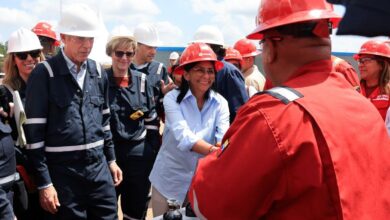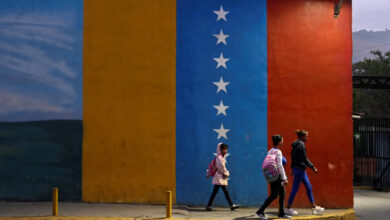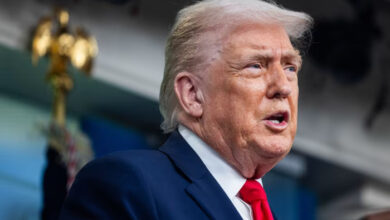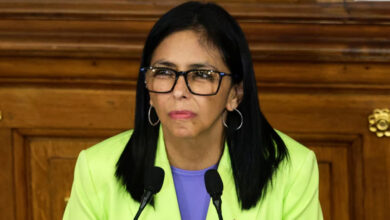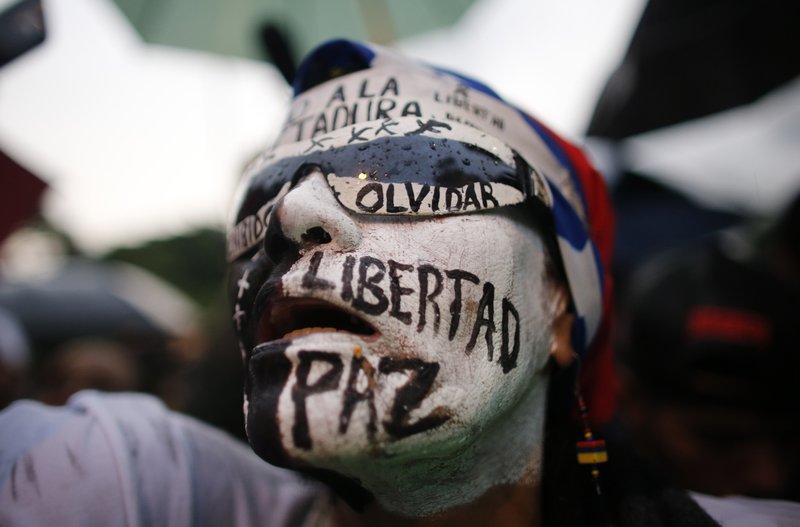
Venezuela’s opposition called for a massive turnout Sunday in a symbolic rejection of President Nicolas Maduro’s plan to rewrite the constitution, a proposal that’s escalating tensions in a nation stricken by widespread shortages and more than 100 days of anti-government protests.
Maduro has called a July 30 vote to elect members of a special assembly to retool Venezuela’s 1999 constitution. The opposition says the vote is structured to pack the constitutional assembly with government supporters and allow Maduro to eliminate the few remaining checks on his power, creating a Cuba-style system dominated by his socialist party.
Maduro and the military dominate most state institutions but the opposition controls the congress and holds three of 23 governorships. The country’s chief prosecutor has recently broken with the ruling party.
“This fraudulent constitutional assembly will create a majority that will shut congress, throw democracy out the window, wipe out state governors and fire the chief prosecutor,” said former Bolivian President Jorge Quiroga, who flew to Caracas Saturday with a group of former Latin American presidents to support the opposition vote. “Tomorrow, democracy and freedom are in play.”
The opposition is boycotting the constitutional assembly. Instead, it has asked Venezuelans to oppose Maduro’s plans by showing up at 2,000 sites across the country to fill out ballots featuring three yes-or-no questions. Do they reject the constitutional assembly? Do they want the armed forces to back congress? Do they support the formation of a government comprised of Maduro backers and opponents?
The symbolic referendum has no legal impact; it will serve as a show of support whose success or failure will be measured in how many millions of people participate. Democratic Unity, a coalition of some 20 opposition parties, has printed 14 million ballots for voters inside and outside the country of 31 million people. Few expect turnout that high but analysts say participation by more than eight million people would significantly hike pressure on the government two weeks before the constitutional assembly.
The government calls the opposition vote a manipulation aimed at destabilizing the country, and has been urging its supporters to participate in the constitutional assembly, which it calls a way of restoring peace to Venezuela.
“Some comrades and brothers may be worn out by the right’s great media campaign. Now they’ve invented this July 16 thing to put the burden on their own people and evade their responsibility,” socialist party Vice President Diosdado Cabello said Saturday. “That’s how the right is, manipulative, fooling their own people.”
Polls show that barely 20 percent of Venezuelans favor rewriting the late Hugo Chavez’s 1999 constitution, about the same level of support they have for Maduro.
The government has nonetheless called for its own nationwide exercise Sunday, a rehearsal for the July 30 assembly that will pull backers into the streets.
Opponents of Venezuela’s government blame it for turning one of the region’s most prosperous countries into an economic basket case with a shrinking economy, soaring inflation and widespread shortages. The government blames the crisis on an economic war waged by its opponents and outside backers. The petroleum-rich nation has been hit hard by falling world oil prices.
Clashes between protesters and police have left at least 93 people dead, 1,500 wounded and more than 500 behind bars.
Edinson Ferrer, head of the Justice First opposition party, said he didn’t expect violence between government backers and opponents Sunday because the polling sites for the two voting exercises were far enough apart to avoid clashes. He said some 50,000 poll workers would help organize the opposition event.

